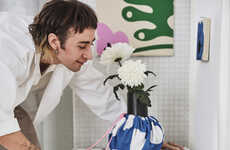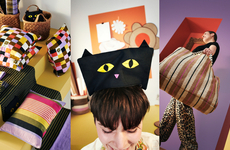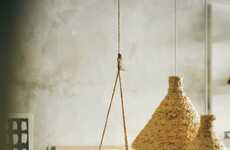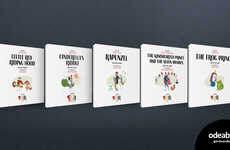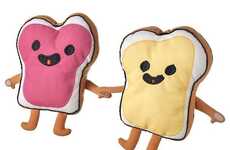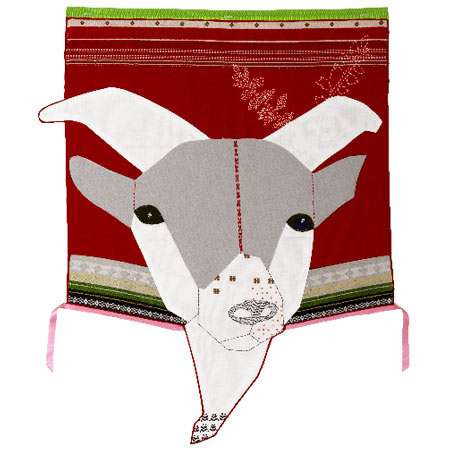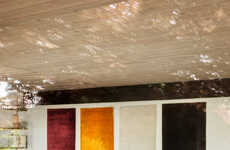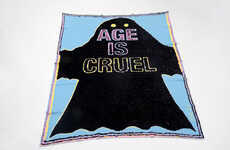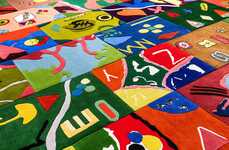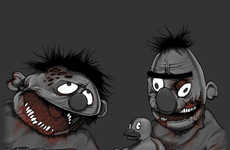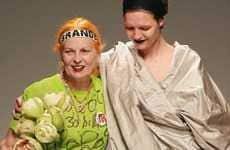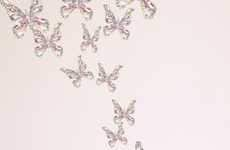
IKEA-UNICEF Project Benefits Indian Seamstresses and Their Families
Rafael Srur Guarilha — February 6, 2009 — Social Good
References: jongeriuslab & dezeen
These three textile wall hangings named Pelle, Mikkel and Gullspira are inspired by Swedish fairy tales and are a part of a project by UNICEF and IKEA.
The goat, fox and rabbit textiles are designed by Dutch designer Hella Jongerius and made by women in India. The result is a label embroidered with the IKEA, Hella Jongerius and the name of the woman who made it.
According to Jongerius' website, the IKEA-UNICEF project helps women of India to start small sewing businesses and enable their children to go to school.
The goat, fox and rabbit textiles are designed by Dutch designer Hella Jongerius and made by women in India. The result is a label embroidered with the IKEA, Hella Jongerius and the name of the woman who made it.
According to Jongerius' website, the IKEA-UNICEF project helps women of India to start small sewing businesses and enable their children to go to school.
Trend Themes
1. Textile Entrepreneurship - The IKEA-UNICEF project can inspire the textile industry to empower women through entrepreneurship.
2. Cultural Inspiration - More businesses can take inspiration from cultural stories and apply it in their products as a differentiation strategy.
3. Sustainable Sourcing - IKEA-UNICEF's sustainable sourcing practices can trigger more businesses to adopt similar practices for a more ethical supply chain.
Industry Implications
1. Textile Manufacturing - Textile manufacturing companies can adopt the IKEA-UNICEF project as a model for sustainable sourcing and empowering women through small businesses.
2. Home Décor - Home décor companies can take inspiration from cultural stories and use it in their designs to create unique products for consumers.
3. Non-profit - Non-profit organizations can partner with businesses like IKEA to create social initiatives that empower women and help communities in need.
1.7
Score
Popularity
Activity
Freshness


